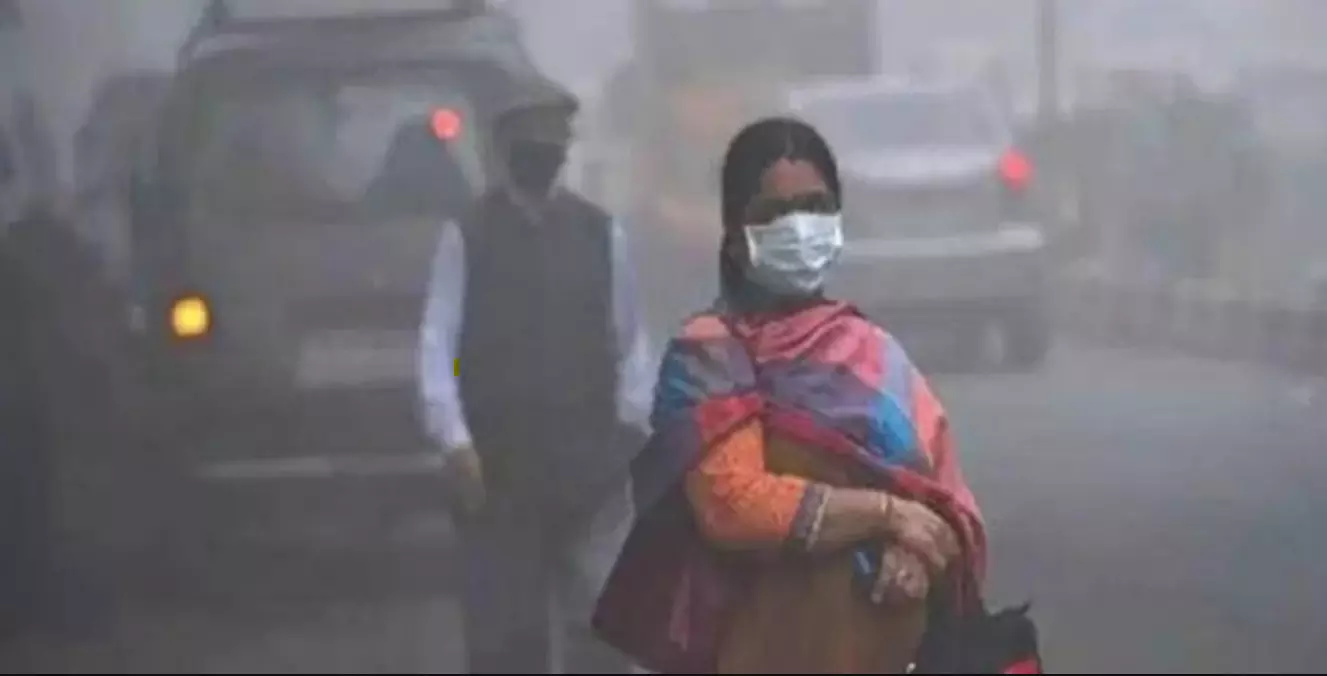Perennial challenges & failures

As the winter season approaches its end in Delhi, the city finds itself once again grappling with the familiar and dreaded enemy – air pollution. Surrounded by the Aravalli Hills and the Himalayas, Delhi's topographical setting creates a natural basin that traps pollutants, exacerbating the problem during winter months. The phenomenon of temperature inversion further compounds the issue by inhibiting the vertical dispersion of pollutants, leading to the accumulation of harmful particulate matter and gases in the lower atmosphere. The large-scale stubble burning in adjoining states post-harvest adds another layer to Delhi's vulnerability to air pollution during winters. While these seasonal drivers contribute significantly to the pollution crisis, Delhi is also burdened by perennial factors throughout the year. Vehicular emissions, industrial activities, poor waste management, open burning, construction dust, household emissions, and insufficient green cover collectively contribute to the degradation of air quality. Despite the perennial nature of this crisis, authorities seem to be stuck in a repetitive cycle of implementing the same guidelines and interventions without much success. The Commission for Air Quality Management (CAQM), responsible for implementing measures to improve air quality, recently invoked Stage-III of the Graded Response Action Plan (GRAP) in response to the worsening air quality. GRAP is a framework that enforces more stringent actions during periods of severe pollution. Stage-III GRAP requires swift action on various fronts. Stone crushers in the NCR will cease operations to curb significant dust emissions, and all mining activities will be suspended to reduce additional sources of pollution. A strict ban on construction and demolition activities across the NCR will aim to minimise dust pollution, with exceptions only for critical projects such as hospitals and national security infrastructure. Additionally, it also entails restrictions on certain types of vehicles. However, it is crucial to note that GRAP is a responsive measure, setting in when the damage is already done. What is urgently needed is a proactive and preventive approach that involves innovation and technical applications. The current lack of political will and determination to find sustainable solutions is glaringly evident. Despite the establishment of the National Clean Air Programme (NCAP) fund, less than 40 per cent of the allocated funds for Delhi-NCR were utilised in 2023-24. The NCAP, a comprehensive initiative by the Indian government, aims to address and mitigate air pollution across the country. The underutilisation of funds raises questions about the commitment of authorities to tackle the issue effectively. Data presented by Union Minister of State for Environment Ashwini Kumar Choubey reveals that between 2019-20 and 2023-24, the central government released Rs 428.61 crore to Delhi, Noida, Alwar, Meerut, Faridabad, and Ghaziabad. Shockingly, only Rs 170.58 crore of this amount has been utilised, indicating a significant failure on the part of authorities to execute and implement effective measures. The repercussions of this failure are grave and extend beyond financial mismanagement. The health and well-being of citizens are at serious risk due to air pollution. Short-term exposure to pollutants can lead to respiratory issues, exacerbate existing conditions such as asthma, and cause irritation to the eyes and throat. Long-term exposure is linked to chronic respiratory diseases, cardiovascular problems, and an increased risk of lung cancer. Fine particulate matter (PM2.5) and other pollutants can penetrate deep into the lungs, entering the bloodstream and contributing to systemic inflammation and various health complications. Vulnerable populations, including children, the elderly, and individuals with pre-existing health conditions, are particularly at risk. It is high time that air pollution is recognised as a violation of basic human rights, including the essential Right to Life and Liberty enshrined under the Indian Constitution. The invocation of GRAP, while necessary as an emergency response, is a quick-fix measure that does not address the root causes of the problem. A year-round, comprehensive plan is urgently needed to rid Delhi-NCR and other cities of this perennial scourge. To sum up, the time for half-hearted measures and ineffective interventions is over. Authorities must take a proactive stance, investing in innovative and sustainable solutions to combat air pollution. The health and well-being of citizens, as well as the environment, depend on the swift and decisive action of those in power. It is not just about the air we breathe; it is about safeguarding the fundamental rights and future of the people. The battle against air pollution must be fought on all fronts, with determination, innovation, and a commitment to securing a cleaner, healthier future for Delhi and its residents.



